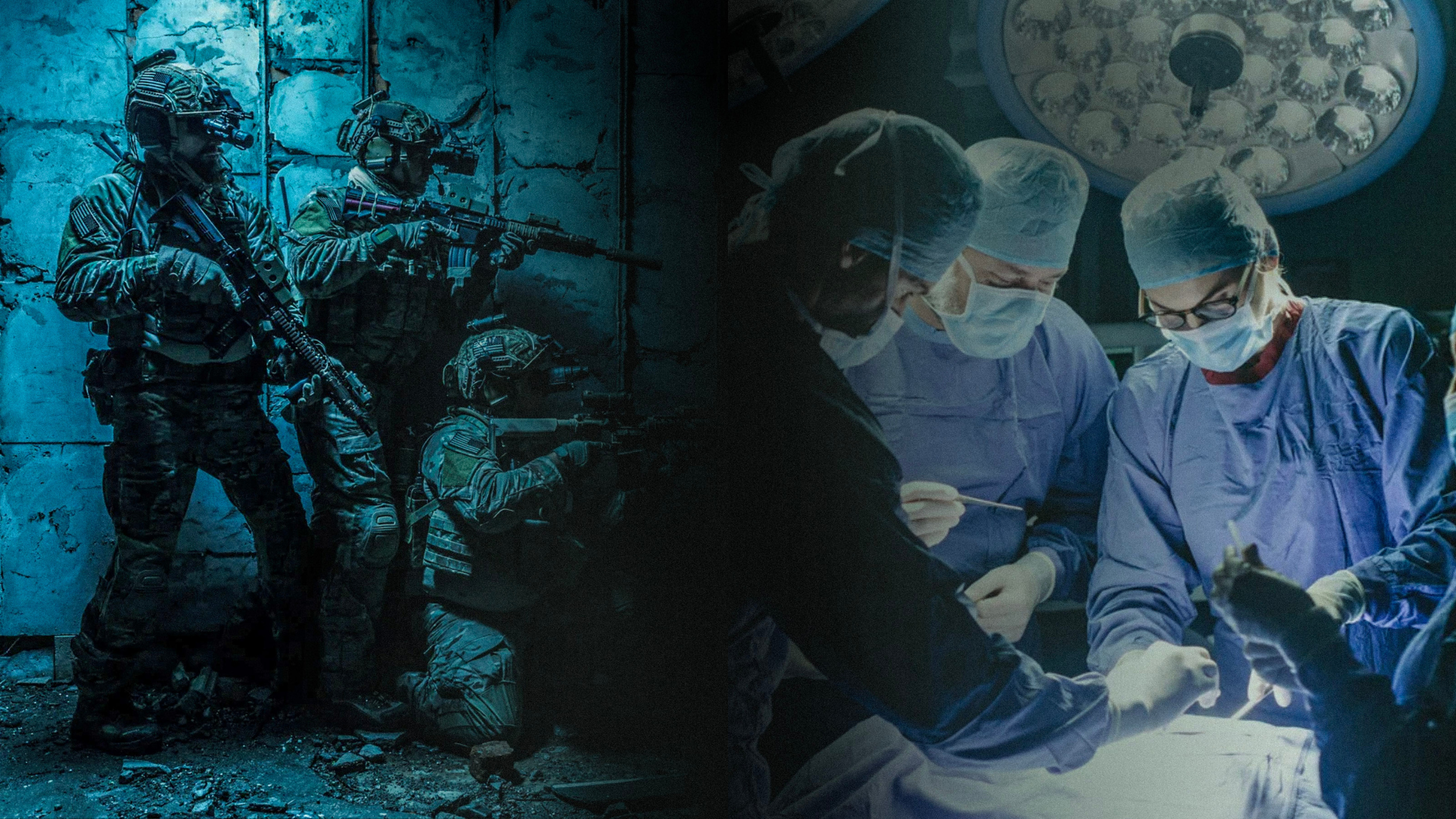The Beginnings of a Groundbreaking Discovery
In 2008, Dr. Kirk Parsley, a former Navy SEAL turned physician, began serving as the “Team Doctor” for Navy SEALs stationed on the west coast of California. Drawing from his unique perspective as both a SEAL and a medical professional, Dr. Parsley focused on understanding the toll combat deployments were taking on the health and well-being of special operators.
Combat Stress and Its Impact on Sleep
By 2009-2010, Dr. Parsley began to see clear patterns in the immense physical and emotional strain SEALs were enduring in the high operational tempo of combat deployments in-and-out of Afghanistan and Iraq.
Both wars relied heavily on a special operations strategy, thus putting unusual demand on a small subset of the US military. As SEALs returned from combat theaters to bases in California or Virginia Beach, many reported significant sleep issues. At the time, these issues were seen as precursors to PTSD, but Dr. Parsley suspected there was more to uncover.
Understanding the Root Causes of Stress
In 2011, Dr. Parsley began exploring the root causes of sleep disruption. Operators were exposed to the stressors of combat, the challenge of maintaining nocturnal missions, and the strain of sleeping during the day. This, combined with the separation from family and the harsh realities of war zones, created a perfect storm of chronic stress. Once back home, the inability to reset and recover compounded the issue, leading to a cascade of physiological and psychological effects.
Collaborative Research and Early Findings
Dr. Parsley and several other experience collaborators, including Dr. Karen Kelly at the Naval Health Research Center, began pioneering research into the biomarkers of stress and sleep disruption. They analyzed bloodwork, tracked sleep patterns, and explored the long-term effects of combat stress. This early work set the stage for a broader understanding of the toll high-stakes professions take on the human body and mind.
The Emergence of Operator Syndrome
In 2020, more than a decade after Dr. Parsley’s initial findings, a groundbreaking paper titled Operator Syndrome was published in the International Journal of Psychiatry and Medicine by Dr. Chris Frueh and colleagues. This paper introduced the term “Operator Syndrome,” describing the cumulative effects of chronic stress and physical demands on military special forces personnel. The authors highlighted how prolonged exposure to an extraordinarily high allostatic load—the body’s wear and tear from chronic stress—can lead to a host of physiological, neurological, and psychological issues. The paper was the first to clearly lay out the realities that nearly 20 years of war had taken on the special operations force:
“Operator Syndrome” may be understood as the natural consequences of an extraordinarily high allostatic load; the accumulation of physiological, neural, and neuroendocrine responses resulting from the prolonged chronic stress; and physical demands of a career with the military special forces.This includes interrelated health and function impairments.” The list of which includes:
Endocrine dysfunction :: Low Testosterone, High Cortisol
Fat Retention
Sleep disturbance;
Chronic orthopedic problems
Substance abuse
Marital, family, and community dysfunction
Problems with sexual health and intimacy
Hypervigilance
Extending Insights to Frontline Medicine
At Arena Labs, we recognize that the principles underlying Operator Syndrome extend beyond the military. Frontline healthcare professionals—physicians and nurses—face similarly high levels of chronic stress, resulting in comparable physiological and psychological challenges. Many times people will say, “I didn’t serve in combat.” The broader implications of allostatic load are anchored in stress as a relative experience. “The Service Archetype”, whether on the frontlines of the military, first responders, or frontline clinicians — have a propensity to give beyond their body’s capacity in order to serve a mission. Living for years in a high-stress, high-tempo lifestyle without the right tools has the same insidious end state, whether from combat or from working a demanding career in the OR, ICU or Emergency Department or Trauma.
The parallels between special operations and frontline medicine underscore the universality of these stressors in high-stakes environments.
Tools to Combat Chronic Stress
Drawing on the pioneering work of Dr. Parsley and others, our mission at Arena Labs is to equip professionals in these fields with tools to combat the insidious effects of allostatic load. Advances in wearable sensors, biometrics, and stress management techniques have made it possible to identify and address these issues proactively.
Enter Arena Strive: Delivering Proven Protocols
Much of what Dr. Parsley’s early research was part of what we call a “human factors renaissance” in the special operations community. Immense investments were made in human performance, from training Operators to better take care of their bodies and minds, to providing world-class technology, tools and coaching. Some of those early investments were in:
- Sleep + Recovery: Starting in 2010, US Special Operations Command began training Operators and their families in “sleep hygiene” and specific tools for high-quality, consistent sleep. It quickly became clear, as it had in professional sports, that sleep was the single best performance enhancing drug available.
- Breathwork and Mindfulness: A wide range of tools were offered in various parts of basic and advanced training to link the connection between breathing, mindfulness and the deactivation of the nervous system. In order to optimize readiness and focus, studies in nervous system activity made it clear that learning to “self regulate” was a superpower over the long arc of a career.
- Active Recovery: In a culture of ultra-motivated Operators, intelligent rest became a necessary anti-dote to constant movement and “activation”, especially on deployments. A range of coaching and resources were offered to counterbalance intense workouts, training cycles, and deployments.
Honoring Pioneers and Advancing Care
Our work in high-performance medicine is built on the foundation of these early insights, honoring the legacy of trailblazers like Dr. Parsley, Dr. Kelly, and Dr. Chris Frueh. By applying these lessons to frontline medicine, we aim to raise the standard of care and well-being for healthcare professionals, ensuring they have the tools to thrive in the face of extraordinary challenges.
Explore the possibilities for your hospital through our Contact page or email hello@arenalabs.co.


